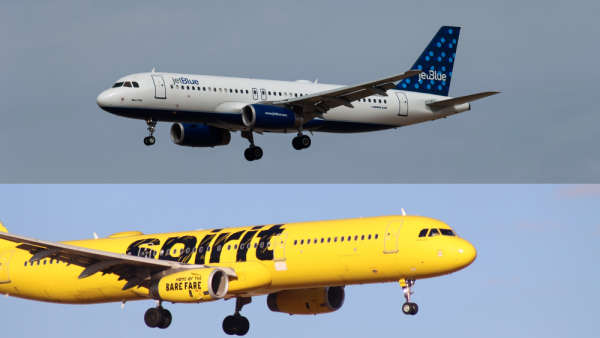ALBAWABA - Significantly, after a U.S. judge blocked the deal earlier this year, low-cost carriers JetBlue Airways and Spirit Airlines have opted to scrap their planned $3.8 billion merger, claiming insurmountable regulatory barriers.
A Boston court voiced reservations about the merger's possible negative impacts on competition and consumer welfare, casting doubt on the plan to create the country's fifth-largest airline and maintain Spirit's operations.
The Biden administration's strong opposition to corporate concentration in the aviation sector is rewarded with the decision to scrap the merger. The administration has maintained its position that the merger will result in higher ticket costs and fewer options for customers.
Merrick Garland, the U.S. Attorney General, praised JetBlue's decision as a win for American customers and emphasized the Department of Justice's continued efforts to protect their interests.
In an internal memo, JetBlue CEO Joanna Geraghty informed staff members that given the federal court decision and the Department of Justice's ongoing opposition, there is very little chance that the merger will be approved anytime soon.
Spirit CEO Ted Christie stated that the current regulatory obstacles would make it impossible for the deal to close on schedule in accordance with the terms of the merger agreement.
As per the terms of the cancelled agreement, Spirit was supposed to receive $69 million from JetBlue. Spirit stockholders were paid $425 million in upfront payments while the merger agreement was still pending.
Spirit now faces difficulties as the seventh-largest airline in the United States, with an unknown future following the breakdown of the merger plan. While the airline works to turn a profit again, it is facing weaker demand in its main markets. Some analysts have warned that if financial stability cannot be reached, the airline may go bankrupt.
JetBlue expresses confidence in its future prospects, stating that it is working to increase revenue by more than $300 million and save costs by $175 million to $200 million. Additionally, the airline has targeted savings of $75 million from fleet upgrading.
Both airlines suffer from the merger's termination, which upsets their strategic goals and forces them to forge separate futures in an increasingly cutthroat aviation market.
In reply, Spirit reaffirmed its dedication to fortifying its financial standing and operational robustness, seeking the aid of consulting firms Perella Weinberg & Partners and Davis Polk & Wardwell.
The fallout from the failed merger emphasizes how difficult it can be to navigate regulatory environments, especially in sectors as important and closely watched as aviation.










